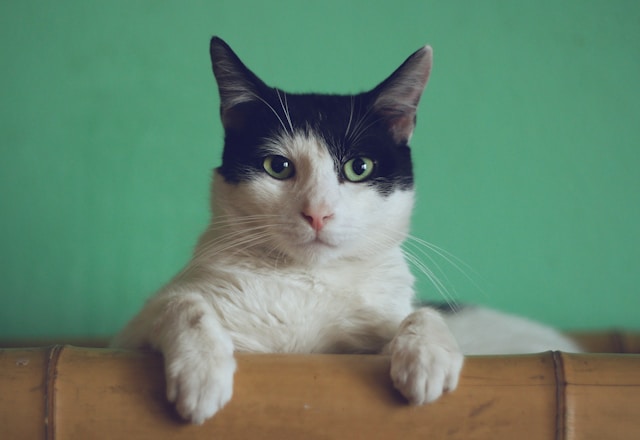Common afflictions in pets involve those that most often manifest in cats-anxiety that eventually manifests itself through behaviour changes such as over-grooming, hiding, and excessive vocalization. They are medications that help reduce pet anxiety; however, nutrition has become such a bright hope in the treatment of calming forces in nature. In a way, by changing the diet of your pet for what is best, you are making your pet feel much better and get healthier both emotionally and physically.
Understanding Anxiety in Pets
Some of the reasons that cause anxiety in pets are:
- Environmental Stressors: Noise, unfamiliar people, or environment.
- Separation Anxiety: This is very common in those animals that bond very closely to their owners.
- Medical Issues: Pain or some other underlying diseases.
Anxiety can be characterized by restlessness, appetite changes, overgrooming, and abnormal aggression. Diet plays a huge role in any holistic approach used to solve the issues.
Nutrition Impact on Pet Anxiety
The level of mental condition in human life is based upon a proper diet; similarly, how a pet or animal lives, moods and moves are greatly affected by the nutrition they eat. The list of those nutritional effects includes,
- Brain Chemistry
Nutrients regulate neurotransmitters to keep them steady in the case of mood.
- Energy Level :
Nutrient lacks can bring lethargy or hyper energy, thus may worsen their anxiety problem,
- Stress Response:
Vitamins and minerals govern the body’s response to stress.
Nutrients For Anxiety Control
1. Tryptophan
Tryptophan is an amino acid required for serotonin production. Tryptophan has been coined “happy chemical.” The best-known sources of tryptophan are
- Turkey
- Eggs
- Fish
Commercial dog and cat diets supplemented with tryptophan reduce anxiety in dogs and cats.
2. Omega 3 Fatty Acids
These beneficial fats found in fish oil promote brain health and work to reduce inflammation involved with anxiety.
- Try to include omega 3 into your pet’s diet.
- You can also choose commercial diets supplemented with fish oil.
3. Antioxidants
Vitamins C and E mitigate oxidative stress that worsens anxiety.
Berries, leafy greens, and pet supplements.
4. Magnesium and Zinc
These minerals modulate the nervous system and have a calming effect on pets.
Lean meats and especially formulated pet foods include them in their products
5. Probiotics
It is obvious that a gut-brain axis exists in people. Animals are the same in this manner. A healthier gut microbiota leads to happy moods. Probiotics in animals lead to gut well-being and may lead to relief from anxiety.
Feeding Factors on Cats
Cats are obligate carnivores and, therefore, feed on a diet rich in protein, which must be of animal origin. The following considerations should be factored into trying to address the issue of anxiety among cats:
- Quality of Protein
Transmitters are synthesized from good-quality animal proteins. Feed diets that feature real meat as the main ingredient.
- Grain-Free Formulations
Some cats do just fine on grain-free diets; if grains cause digestive upset, that’s contributing to stress.
- Calming Diets
There are prescription diets that have nutrients such as tryptophan and omega-3s that help reduce anxiety. Ask your vet about these options.
If your pet is already on a balanced diet, treats and supplements can be an added support.
Probiotic Treats
Probiotics can improve your cat’s gut health and reduce stress-related behaviours.
Nutrition with Anxiety Drugs for Cats
At times, nutrition alone may not be enough to handle anxiety in cats. This is where anxiety drugs for cats can supplement nutritional strategies.
When Are Anxiety Drugs Necessary?
Severe anxiety that is not improved with behavioural training or diet modification.
- Situational anxiety due to travel, vet visits, etc.
- Popular Medications for Cats’ Anxiety
- Fluoxetine: It can be given in chronic cases.
- Alprazolam: Used as an interim treatment when stress levels are at peak levels.
- Combination therapy using drugs is ideal for being accompanied by dietary improvements, proper habits, and enrichment of the environment.
How to Feed Anxious Cats:
- Consistency: Offer meals at the same hour every day in order to help create a routine, security, and comfort for pets.
- Feed From Puzzle Feeders: They are effective because they help stimulate the cat’s mind when eating, leaving it bored or scared.
- Introduce any new food gradually: The stomach gets disturbed by change, resulting in more anxiety.
Life Changes Compatible with Nutrition
Thus, nutritional components would be only half the work done. To gain the best from these tips, attempt to integrate into use these nutritional improvements:
Safe room
An extra cozy place into which your cat could retreat when feeling overwhelmed.
Play with Your Cat
Interactive play reduces anxiety and redirects nervous energy.
Change Environmental Triggers
Reduce noise levels, gradually introduce new pets or people, and maintain a clean and well-organized environment.
Conclusion
It will do nothing less than demolish that connection with animals. If your cat eats high-quality diets rich in tryptophan, omega-3 fatty acids, and probiotics, you will see a visible enhancement of mental well-being in your cat. The most common use of ‘anxiety medicine’ in cats is dietary means combined with prescribed medication; treatment of severe anxiety usually requires other added measures.
By addressing cat anxiety in a holistic approach, you create healthier and happier living for your little feline buddy. Proper nutrition, medication, and lifestyle changes can help you manage pet anxiety, not merely possible but rather attainable.



